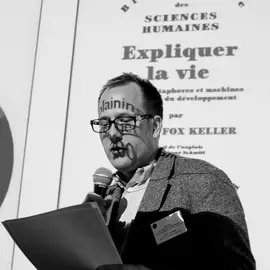History of “eco-architecture” in Switzerland, 196X-199X. An architectural-historical, corpuslinguistic and gender-theoretical analysis (ÖKO)
Architecture has a major influence on the climate and is currently looking for solutions. However, this is not new: topics such as re-use or regenerative materials were already being investigated and incorporated into experimental buildings after the Second World War. This project aims to reconstruct the history of this movement in Switzerland.
Description
Sustainability is the maxim of contemporary architecture today. Terms such as “gray energy”, ‘sufficiency’ or “reuse” have become an integral part of architects' essays and lectures, even though they were virtually unknown just a few years ago. This is because the current discourse makes no reference whatsoever to the tradition of “eco-architecture”, which anticipated many topics and issues between 1960 and 2000 that are virulent today.
At that time, numerous architects, together with actors from other disciplines, set themselves the task of conserving resources and using alternative energy sources. The house was seen as a “power plant” that could save electricity, store energy and even be built from “waste”. It therefore stood for a sustainable and independent way of life.
During this period, there were countless exciting architectural experiments in sustainable architecture: solar houses (passive and active) were built, as were low-energy houses, and these have influenced our current standards as well as the standards system, above all Minergie and the principle of appropriate insulation. In the history of architecture, however, this movement with its aspirations for society as a whole is still a blind spot. The “alternative” and “anti-modern” attitude associated with it - after all, it was about nothing less than saving the environment with the help of architecture - was one of the main reasons why it has not been taken seriously to this day.
The results of the research will be made known to a wider audience in the form of articles, books and exhibitions.
Key data
Projectlead
Co-Projectlead
Project team
Project status
ongoing, started 08/2025
Institute/Centre
Institute of Constructive Design (IKE); Institute of Language Competence (ILC)
Funding partner
SNF Projektförderung
Project budget
500'000 CHF
